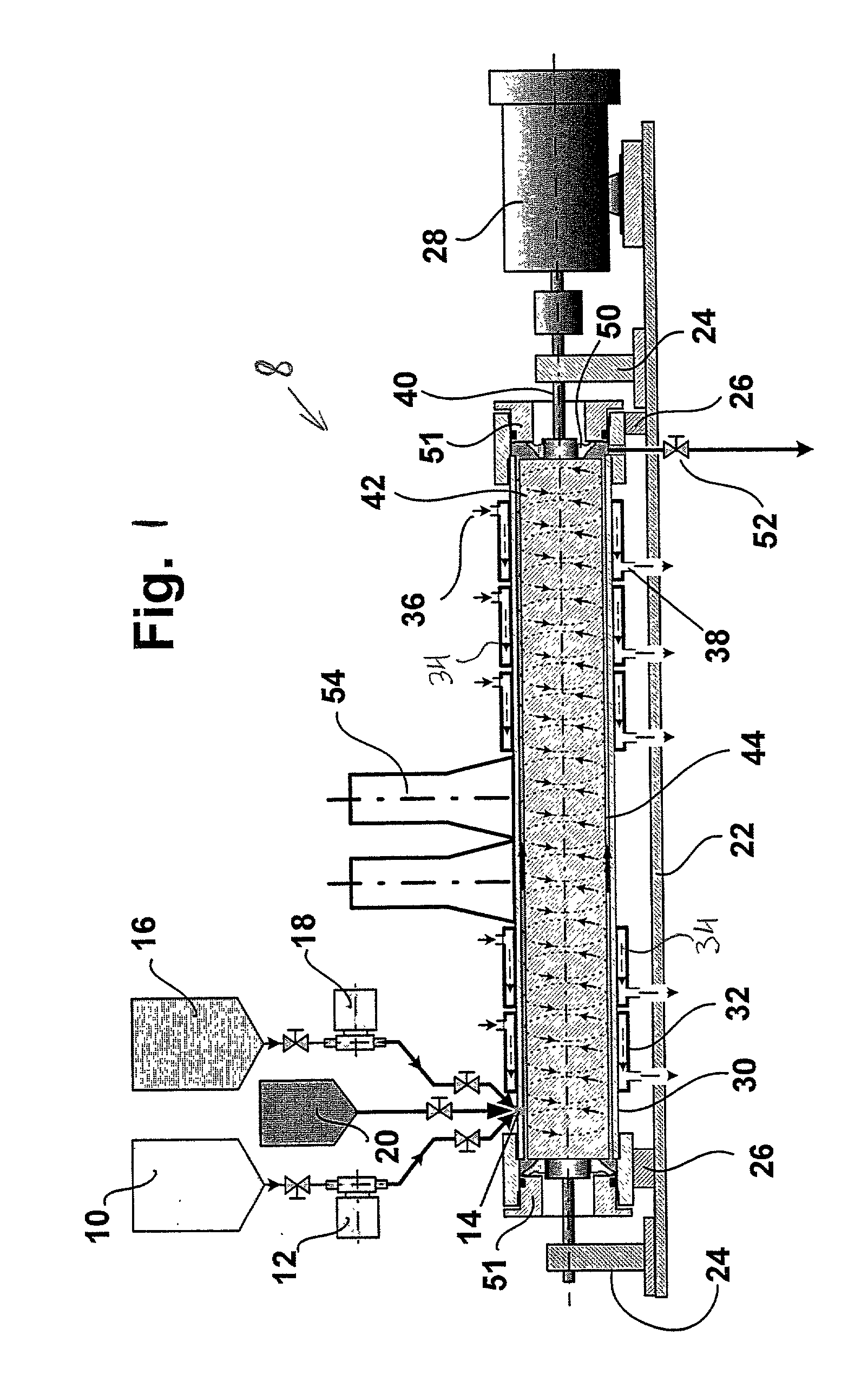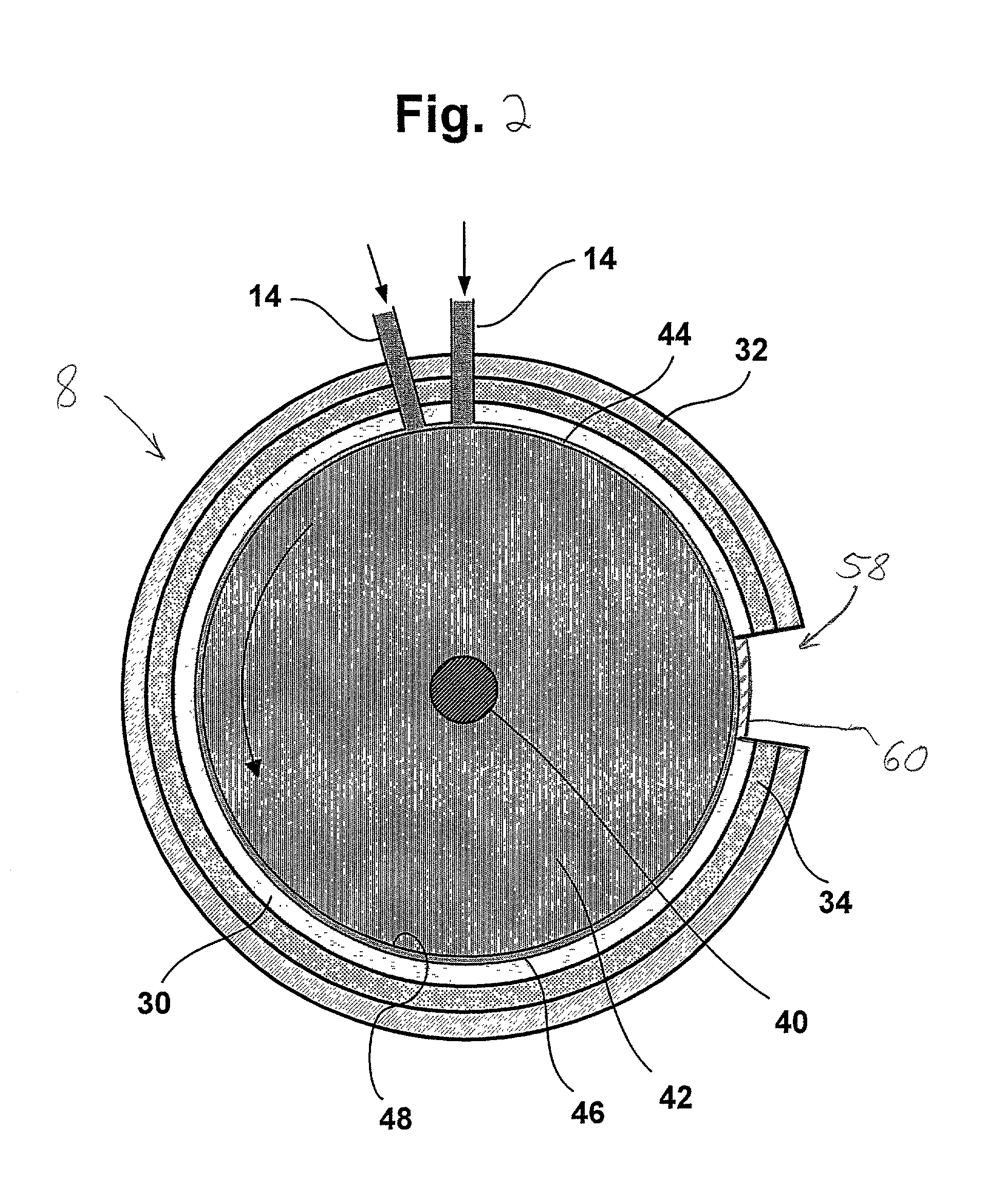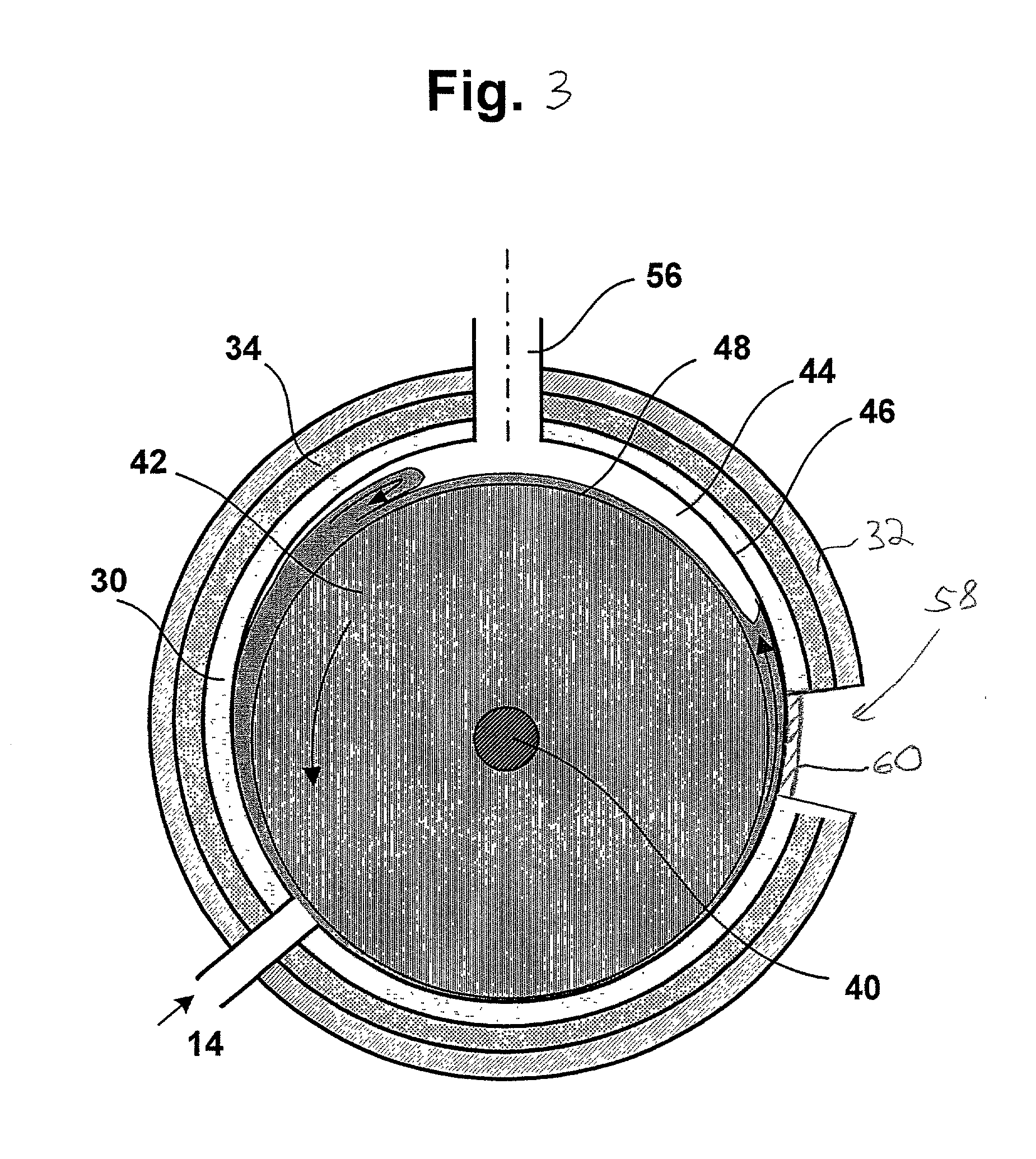Electromagnetic wave assisted chemical processing
a technology of electromagnetic wave and chemical processing, applied in the field of material processing, can solve the problems of limited absorption efficiency, poor interior volume, and very hot outer parts of materials
- Summary
- Abstract
- Description
- Claims
- Application Information
AI Technical Summary
Problems solved by technology
Method used
Image
Examples
Embodiment Construction
[0019] In a reactor 8 illustrated by FIGS. 1 and 2, a first reactant (Reactant A) is fed from a supply tank 10 via a metering pump 12 to inlet 14, while a second reactant (Reactant B) is fed from a supply tank 16 via a metering pump 18 to the same inlet 14. If required, an optional catalyst or reactant gas is fed from a supply tank 20 to the inlet 14. If separate inlets 14 are used then they must be in close tangential proximity to one another. The processing apparatus comprises a baseplate 22 on which is mounted rotor bearing supports 24, stator supports 26 and a variable speed electric drive motor 28. An outer cylindrical apparatus member or cylindrical tube 30 comprising the apparatus stator is mounted on supports 24, and in turn supports along the major portion of its length another cylindrical tube 32 constituting the outer casing of a heat exchanger through which gas or liquid can be passed to control the temperature in the processing chamber. The annular passage 34 between th...
PUM
| Property | Measurement | Unit |
|---|---|---|
| linear velocity | aaaaa | aaaaa |
| frequency | aaaaa | aaaaa |
| frequency | aaaaa | aaaaa |
Abstract
Description
Claims
Application Information
 Login to View More
Login to View More - R&D
- Intellectual Property
- Life Sciences
- Materials
- Tech Scout
- Unparalleled Data Quality
- Higher Quality Content
- 60% Fewer Hallucinations
Browse by: Latest US Patents, China's latest patents, Technical Efficacy Thesaurus, Application Domain, Technology Topic, Popular Technical Reports.
© 2025 PatSnap. All rights reserved.Legal|Privacy policy|Modern Slavery Act Transparency Statement|Sitemap|About US| Contact US: help@patsnap.com



